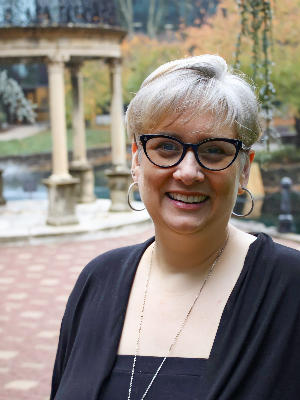
May 5-9, 2025 - Virtual via Zoom
At its core, Universal Design for Learning (UDL) provides a framework for instructional design that meets the diverse needs of heterogenous groups of learners. This session will provide a fresh look at the most current information on central auditory processing disorder and neurological and cerebral visual impairments through the lens of UDL. The basic premise of UDL as an approach to inclusive education provides new ways of considering how we teach students with brain-based hearing and vision issues (i.e., CAPD, NVI, and/or CVI), including no-tech and low-tech strategies that can be easily implemented with young children. A supplementary benefit to these strategies is that they support learning and engagement for almost all children.

Kathy is the TVI Program Director and an Assistant Professor in the Blindness and Low Vision Studies department at Salus at Drexel University. She has a 35-year career in education with years of experience as an early interventionist, a Montessorian, a TVI, and a COMS. She maintains a private practice providing visual impairment evaluations, virtual instruction, consultation, IEP support, and TVI support services and holds TVI licensure in five states. Special areas of interest include early childhood special education, literacy, neurological visual impairment (NVI/CVI) and inclusive educational practices.She is chair elect of the NVI Division AERBVI.

Maurice Belote has worked exclusively in the field of DeafBlindness for 43 years. He has served as a home/hospital teacher, a classroom teacher, and a state DeafBlind project coordinator. He is currently adjunct faculty with three university training programs in DeafBlindness and serves as Co-Chair of the National DeafBlind Coalition, which advocates for federal legislation and policies that promote equity for DeafBlind children and youth. Maurice is a frequent speaker at national and international meetings and, in 2021, was awarded the Anne Sullivan Medal for his work on behalf of DeafBlind students and their families.